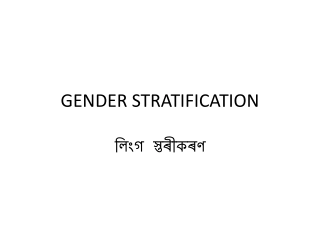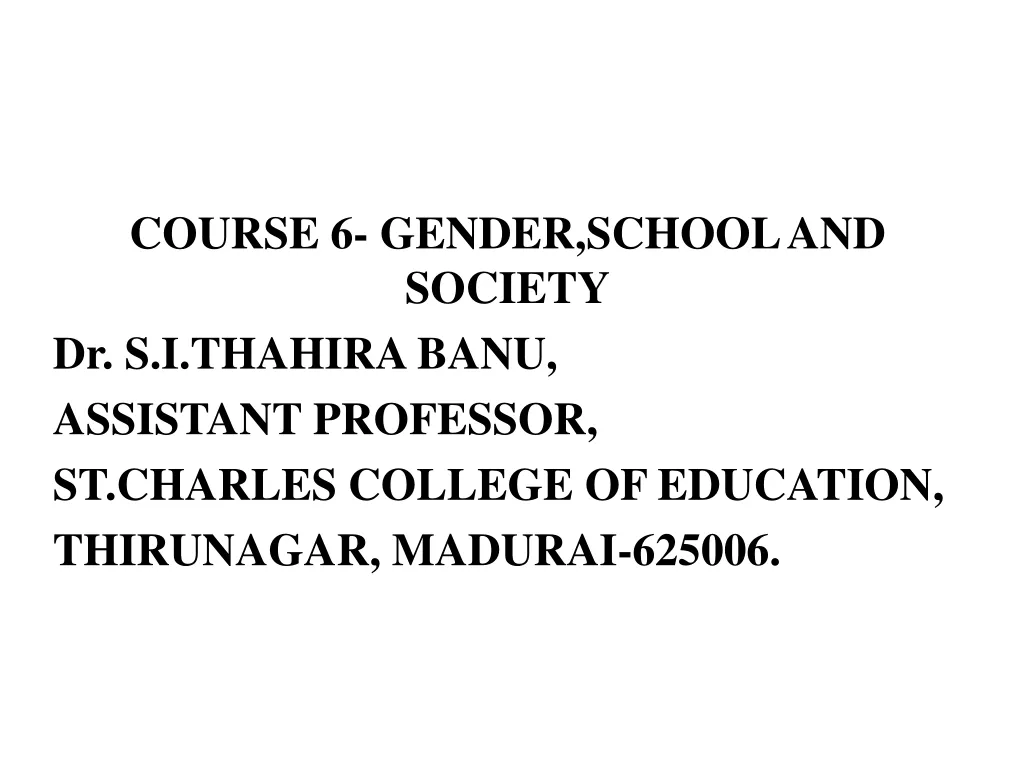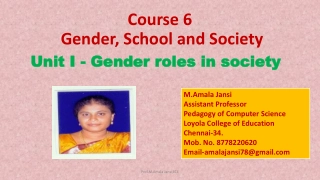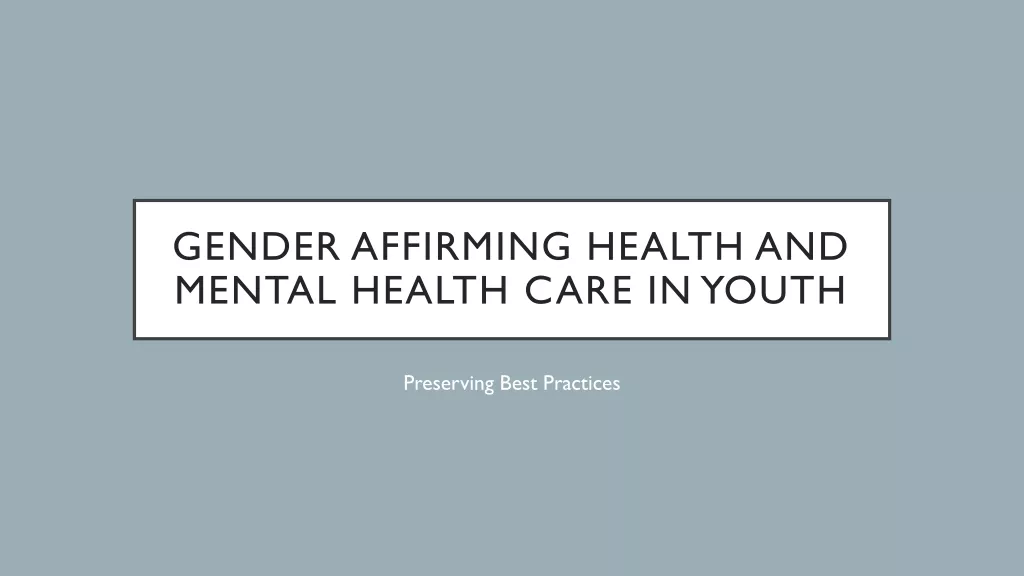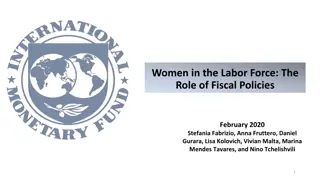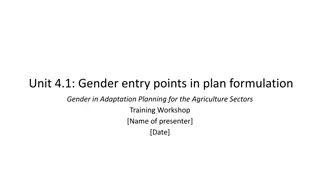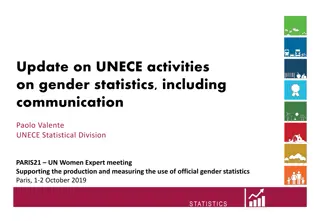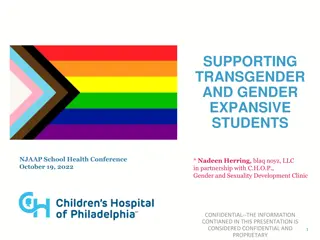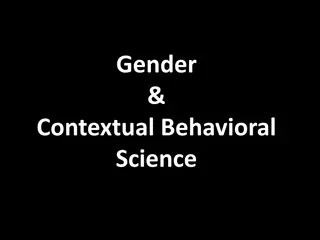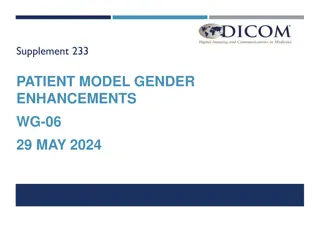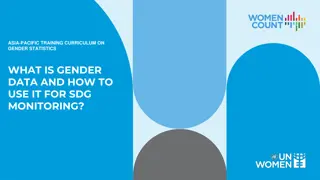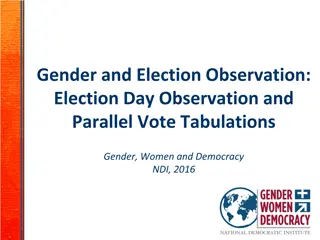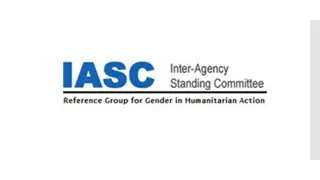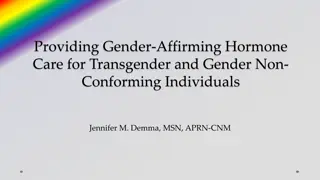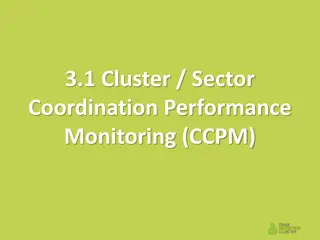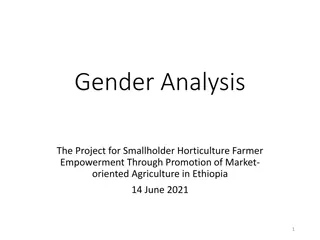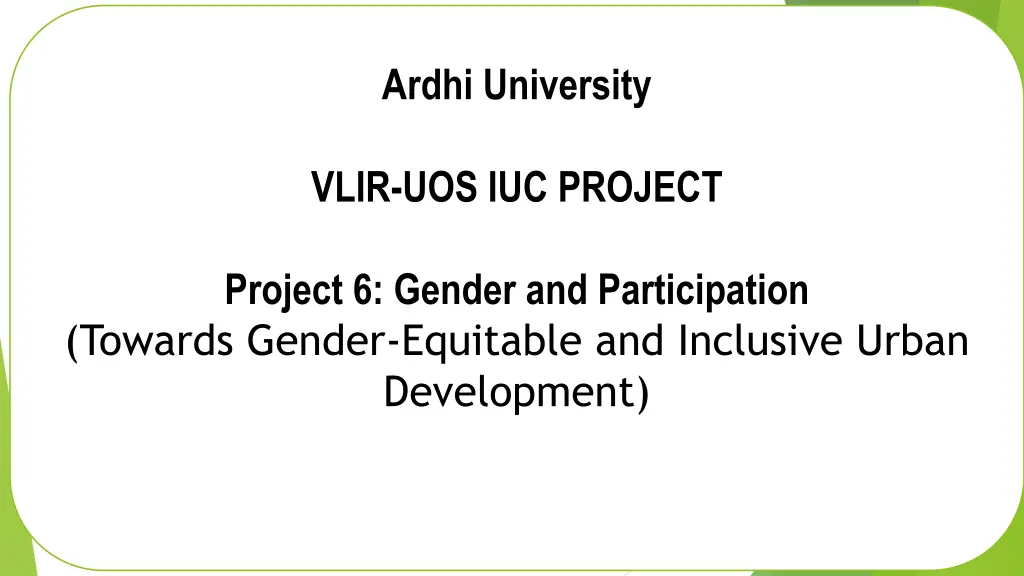
Gender Participation Project at Ardhi University
Explore Ardhi University's project on gender participation towards gender-equitable and inclusive urban development. Discover how the project aims to enhance gender mainstreaming, improve academic projects with gender perspectives, and develop research and education initiatives. Analyze the context analysis at Ardhi University regarding gender and participation, and understand the linkages with other projects for fostering community engagement and digital inclusion.
Download Presentation

Please find below an Image/Link to download the presentation.
The content on the website is provided AS IS for your information and personal use only. It may not be sold, licensed, or shared on other websites without obtaining consent from the author. If you encounter any issues during the download, it is possible that the publisher has removed the file from their server.
You are allowed to download the files provided on this website for personal or commercial use, subject to the condition that they are used lawfully. All files are the property of their respective owners.
The content on the website is provided AS IS for your information and personal use only. It may not be sold, licensed, or shared on other websites without obtaining consent from the author.
E N D
Presentation Transcript
Ardhi University VLIR-UOS IUC PROJECT Project 6: Gender and Participation (Towards Gender-Equitable and Inclusive Urban Development)
Overview 1. Genesis of the Project 2. Gender & Participation at Ardhi University: Context analysis 3. Linkage with other projects 4. Objectives and Expected Achievements 5. Areas of Collaboration 6. Synergies & complementarities 7. Project Team
1. Genesis of the Project Ardhi University is committed to gender equality and aims to strengthen the implementation of gender mainstreaming within its own organization. This project will enhance the review and implementation of the existing ARU gender policy, ensure the academic projects include gender perspectives in their project approach and implementation and develop a research and education project.
2. Gender and Participation at Ardhi University Context Analysis Limited research, teaching and consultancy capability Inadequate gender courses offered in undergraduate and postgraduate degree programs despite that the programs offered at ARU are aimed at tackling societal and environmental problems affecting the communities Limited engagement with national and international organs Limited expertise in civic/community participation and empowering physically, socially, culturally and economically disadvantaged groups Weak linkages between the university researches and industry Undeveloped technology transfer offices, incubators and technology
3. Linkage with other Projects close link of this domain with all five projects as gender and societal participation are transversal topics Oversee community engagements in the domains of change Foster inclusion and participation in all domains of change Develop synergy between the end-users (supply and demand) Research, training and outreach Also, there is a link with the transversal ICT and Smart Sustainable and Inclusive Cities because society is going digital, and there is a call for gender digital inclusion Gender and community participation domain will ensure trainings are offered to staff of the other domains of change to support them in mainstreaming a gender/participation perspective in their projects
4. Objectives & Expected Achievements A. The project s overall objective To mainstream a gender and societal/community participation perspective at ARU s Training/education Research and Outreach portfolio B. The medium-term achievement To attain higher level of gender sensitivity in academic output Attention will be given to gender sensitivity in terms of numbers, content and processes to contribute towards gender equality, equity, empowerment and well-being within communities The medium-term achievement will be visualized in three different interconnected areas:
1. NUMBERS: where in the first five years of implementation 2PhD students and 4 master students will be trained Here effort will be done to attract female students 2. CONTENT: A gender & societal/community participation perspective will be mainstreamed in activities and outputs of the three academic pillars which are: i. Training ii. Research iii. Outreach
2.1.Training: Staff and student capacity in gender-sensitive and community-based approaches will be increased and this will be possible through: Revised course content as well as Developing new courses Societal actors knowledge and skills will be increased through short term courses and training packages whereby over the first 5 years; 2 new short courses will be developed and A total of 250 professionals are expected to be trained (of which half will be female).
2.2. Research: Staff and student s capacity in actionable gender & community participation research will be increased through training and involvement in gender-sensitive community-based action research at 3 different Ardhi research sites Over the 1st 5 years of implementation, it is envisioned to produce 5 peer reviewed publications and 5 conference contributions 2.3. Outreach: staff and student s capacity in gender-sensitive outreach activities will be increased where the project foresees 5 policy briefs, 5 policy seminars 20 posters 5 videos to be produced in the five years of implementation
3. ORGANISATION/PROCESSES Over the 1st 5 years of implementation, The existing ARU gender policy and its implementation will be reviewed, A gender research and outreach platform will be established, and A mentorship system will be put in place. The project is anticipating to train (over five years) 100 female PhD & master students: in writing of Research proposals, Policy briefs, Curriculum vitae in communication towards different audiences (presentations, development of posters and video s)
C. Long-term achievements: In ten years, we are anticipating to achieve the following: 4 PhD & 8 masters at least 10 peer reviewed publications, at least 10 conference contributions, 10 policy briefs,10 policy seminars, 40 posters and 10 videos will be produced. 500 professionals will participate in short courses and outreach activities organized at/by ARU. an updated gender policy, a gender research & outreach platform, an interdisciplinary research group and a mentorship system which will increase the level of gender equality and empowerment both inside the university and in the different domains of change and community at large.
5. Areas of collaboration 1. Training/Education Students' supervision Content review, development and implementation 2. Research Action-research, publications and conference contributions 3. Outreach preparation of policy briefs, policy seminars, posters, videos 4. Development of community engagement tools and overviewing their implementation to all domains of change to enhance community participation.
6. 6. Synergies/complementaries (non-exhaustive) IUS Mzumbe University in particular Fuatilia Maji project : action research on community based mobile (water) monitoring currently implemented in Mvomero district ( https://www.uantwerpen.be/en/projects/fuatilia-maji/) can be broadened and deepened to the ARU research sites Networking with staff of Mzumbe University Valorisation of (previous) IUS outputs TESCEA subproject on gender equality & social inclusion in education (lead Mzumbe University) Exchange of experiences with other Tanzanian & East African universities
6. Synergies/complementaries (non-exhaustive) Tanzanian Alumni Community of Flemish/Belgian Universities particularly graduates that work on gender & community participation, positioned within government, civil society, parliament, universities, international organisations, Networking opportunities Increased impact Ministry of Health, Community Development, Gender, Elderly and Children for policy implementation
7. Project 6 Team Composition (so far) Dr. Angela Jesse - Team Leader (south)(ARU) Dr. Nelly John Babere - Co-Team Leader (south)(ARU) Prof. dr. Nathalie Holvoet Team Leader (north)(IOB/UA) Dr. Deodatus Patrick Shayo Member (ARU) Mr. Jimson Joseph Chumbula - Member (ARU) Dr. Sara Dewachter Member (IOB/UA) Ms. Diana Tiholaz Member (IOB/UA) Ms. Kaat Van Acker Member (Odisee) Ms. Hannelore Verbrugge Member (VIVES) Ms. Stefanie Holvoet Member (VIVES)
Dr. Christina Shitima Member (Mzumbe University) Dr. Jennifer Sesabo Member (Mzumbe University) Ms. Doreen Kyando Member (Mzumbe University Ms. Clara Kalanga-Member (Tanzania Gender Networking Programme (TGNP)) Ms. Prisca Kadege - Member (Tengeru Institute of Community Development (TICD) Ms. Haifa Selengu Member (Ministry of Health, Community Development, Gender, Elderly and Children) Ms. Esther Kaselenge - Member (Ministry of Health, Community Development, Gender, Elderly and Children)
Thanks for listening Questions? Remarks?

